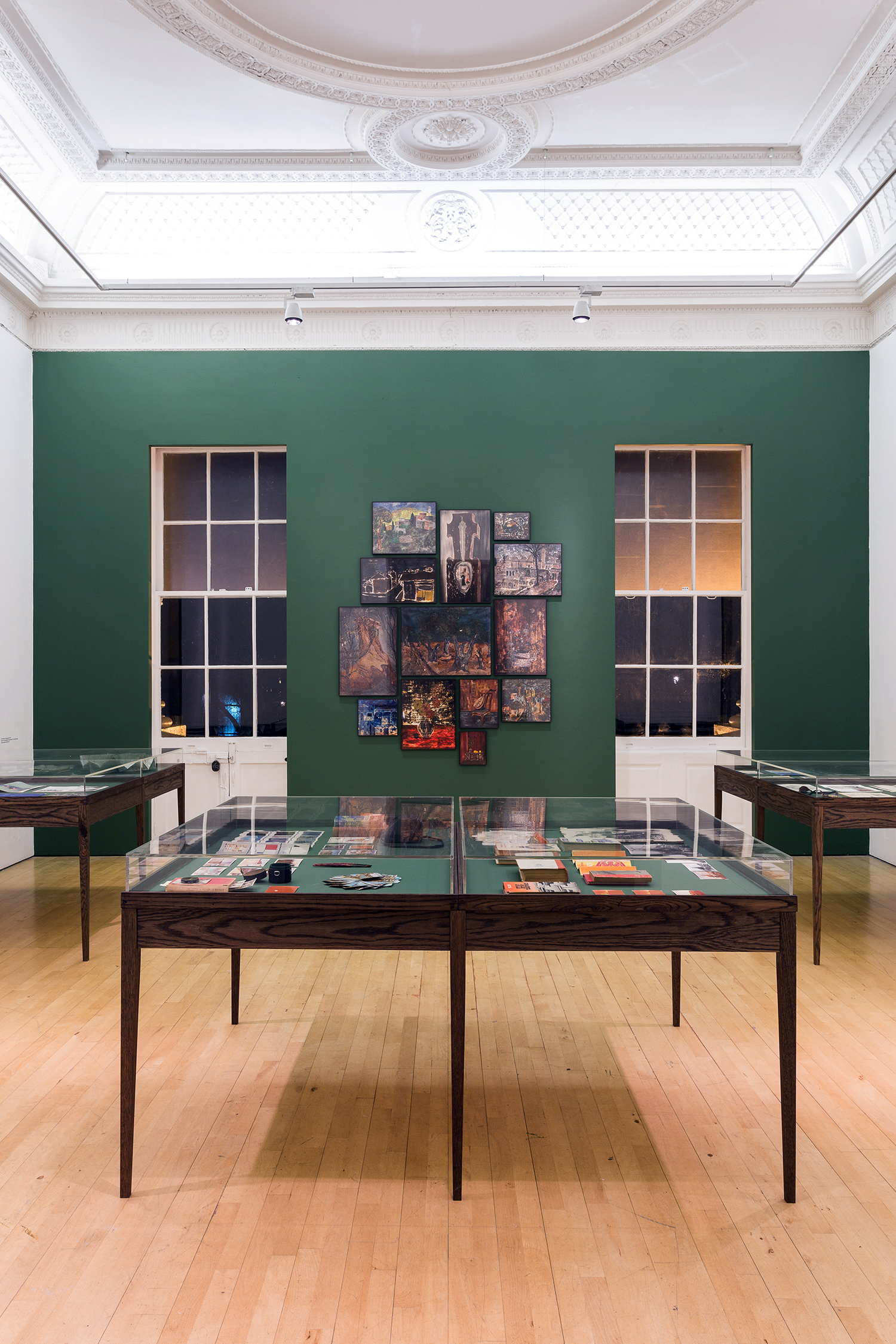Dor Guez – 40 Days is Guez’ first solo exhibition in the UK. Consistent with his previous projects, the artist follows his practice of interventions with scanned (digitalised) images that he defines as scanograms, from his evolving Christian Palestinian Archive. In this intimate exhibition, Guez explores issues of identity, nationality, locality and universalism through a narration of his grandfather’s life and death and family’s genealogy. This close observation of past generations is a marked distinction from Guez’ on-going discussion about the Zionist meta-narrative.
The formal documents, such as scanned passports in black frames exhibited in the centre of the main gallery, shift between functional display cabinets and representations resembling floating graves. These create strong visual and conceptual affinities with the scanogram images surrounding them. Such affinities emphasise the archival nature of this exhibition.
A keen observer of the complicated relationship between minorities in Israel, particularly Arab Christians and Muslims, Guez traces his ancestors’ graves, desecrated by religious fundamentalists. The artist’s criticality is embodied in works that capture atrocious acts driven by unspecified religious extremists that provoke hostility and alienation. Guez encourages viewers to go beyond this particular local context to reflect on sacrilege as a universal phenomenon where a delicate social fabric is destabilised and when others’ existence is threatened.
Dor Guez – 40 days (2012), the key video installation in the exhibition, inhabits according to Achim Borchardt-Hume, Tate’s Head of Exhibitions, ‘…the mechanism of seeing and not seeing, information given and hidden, reviewed and covered-up’. Like Guez’ former video works, it commences with a personal story, the death of his grandfather Jacob Monayer who was the Head of the Lod Arab Christian community. By making this event public, Guez re-emphasises that his Archive is a community project. Drawing on the story of the Arab Christian cemetery in Lod and touching upon the tension between this community and its Greek Orthodox religious leadership Guez reflects on wider questions about what it means to be an Arab Christian Palestinian; being part of this minority; and the complicated and fragile relationships between the different minorities and the Jewish majority co-habiting a Jewish state. Encouraging viewers to engage with these socio-political and religious issues, yet not filling all gaps in knowledge or presenting all the local nuances (perhaps deliberately), this work is still a sound starting point for understanding the complexities of Israel’s social fabric.

